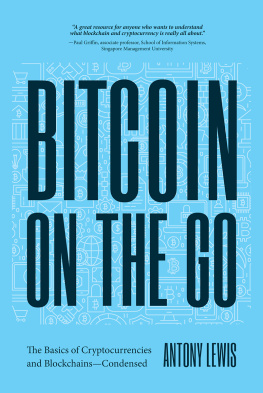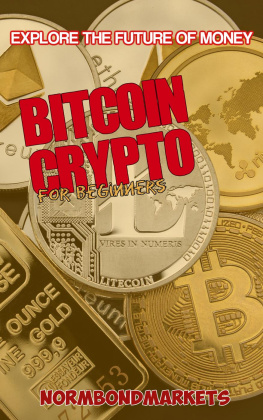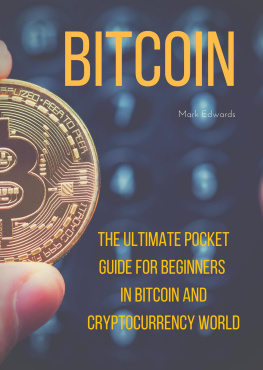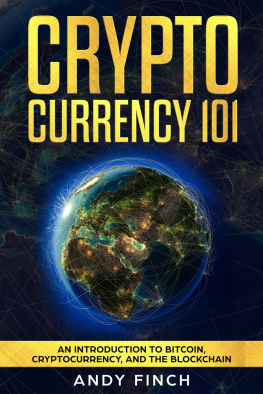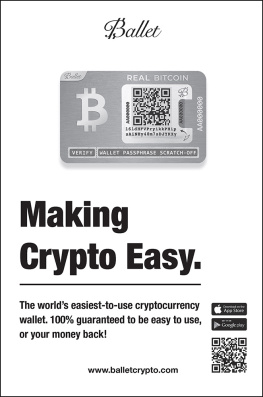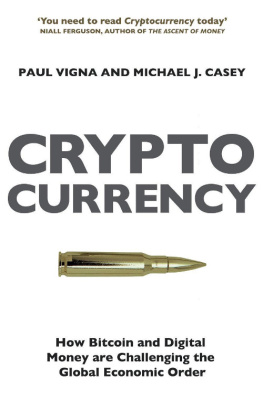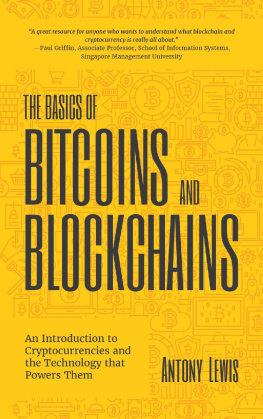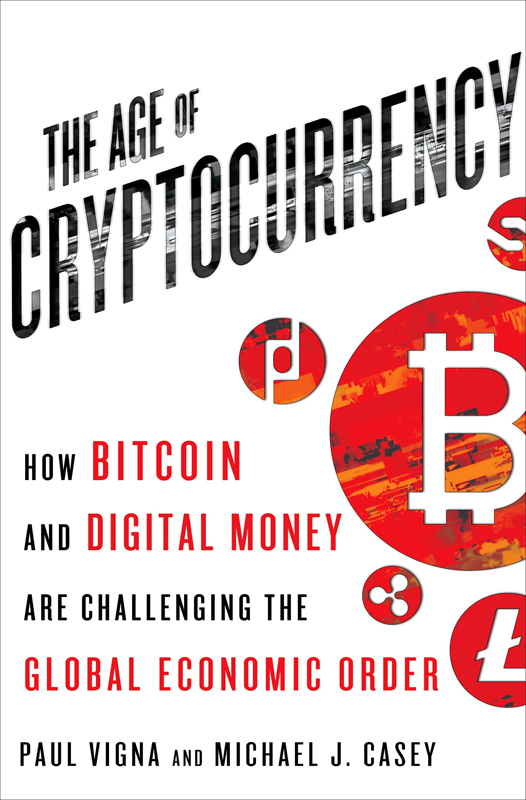Contents
Guide
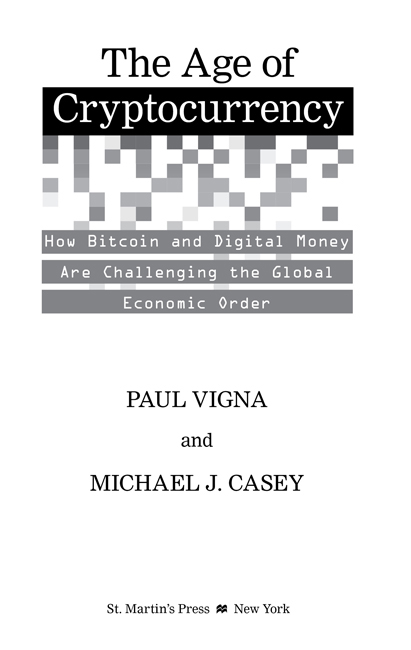
The authors and publisher have provided this e-book to you for your personal use only. You may not make this e-book publicly available in any way. Copyright infringement is against the law. If you believe the copy of this e-book you are reading infringes on the authors copyright, please notify the publisher at: us.macmillanusa.com/piracy.
For Elizabeth
PV
For Mum and Dad
MC
Contents
Money wont create success, the freedom to make it will.
Nelson Mandela
Even though Parisa Ahmadi was in the top of her class at the all-girls Hatifi High School in Herat, Afghanistan, her family was initially against her enrolling in classes being offered by a private venture that promised to teach young girls Internet and social-media skillsand even pay them for their efforts. Here in Afghanistan a womans life is limited by her rooms walls and school, she wrote in an e-mail. In Afghanistan, girls are not exposed to the Internet, not at home and not at school. Thats the way it might have stayed, too, if Ahmadi hadnt persisted. She was a top student, and she wanted to take even more classes. In her mind, that was reason enough. She pressed her family, by her own admission, a lot.
The venture backing these classes is the Film Annex, a U.S.-based arts group that uses social media and an online site to pay the three hundred thousand bloggers and filmmakers who contribute their work. Film Annex ended up in Afghanistan by way of its direct affiliation with the Womens Annex, a digital literacy program set up in conjunction with Afghan businesswoman Roya Mahboob, which now educates fifty thousand girls in schools across Afghanistan. Mahboob is something of a celebrity; named one of the one hundred most influential people in the world by Time magazine, she runs a software company called Afghan Citadel, is one of the few female CEOs in Afghanistan, and has made education for Afghani women her central cause. The Womens Annex sets up its classrooms in local high schools, and the classes are taught by women. Because of this last feature, Ahmadis family finally relented and let her sign up.
Ahmadi started taking classes in 2013. She and her classmates were learning about the World Wide Web, social media, and blogs. A movie lover who also loved to write about the movies that moved her, she began posting on a blog, and its members responded positively to her reviews, earning her the first real income of her young life.
Still, one of the other things most girls dont have in Afghanistan is a bank account. If the Afghani teen ever had any money, she had to transfer it into her fathers or brothers bank accounts, and thats simply the way it is for most girls where she lives. In this sense, she was luckyfor many women from her background male family members block them from access to their funds and treat the money as their own.
Ahmadis luck would change in early 2014. The Film Annexs New Yorkbased founder, Francesco Rulli, aware of the difficulty faced by women like Ahmadi and frustrated by the transaction costs he incurred in sending relatively small amounts of money around the world, implemented a sweeping change to the Film Annexs payment system. He would pay his bloggers in bitcoin, the digital currency that had seemed to come out of nowhere in 2013, with a small, fiercely dedicated band of tech-minded, libertarian-leaning digital utopians acting as its standard-bearers, and swearing to anybody whod listen that it was going to change the world.
Rulli, driven by a philosophy thats a sort of bootstrap capitalism, soon got bitcoin and gleaned the advantages it could have for people like Ahmadi, who was one of more than seven thousand young Afghani women listed as paid contributors to the Film Annex. Bitcoins are stored in digital bank accounts or wallets that can be set up at home by anyone with Internet access. There is no trip to the bank to set up an account, no need for documentation or proof that youre a man. Indeed, bitcoin does not know your name or gender, so it allows women in patriarchal societies, at least those with access to the Internet, to control their own money. The importance of this cannot be overstated. These women are building something that is theirs, not their fathers or brothers. While not a panacea, this blast of cutting-edge, twenty-first-century technology offers real promise as a way to help unshackle an entire swath of the human population.
Many Film Annex contributors in the United States, the United Kingdom, Italy, and other rich countries grumbled about the inconvenience of the digital currency. Few businesses, online or otherwise, accepted it for payment, and to many the whole thing seemed dodgy. The complaints arent unique to Film Annex contributors; to many people bitcoin seems like a half-baked scam, some scheme to sucker fools out of their money. Moreover, Ahmadi contends with the same issues related to bitcoin that her peers in other countries had grumbled about, in particular that the options for spending it are still limited, especially in an economy as underdeveloped as Afghanistans. To deal with such problems, the Film Annex set up an e-commerce site in 2014 allowing its members to trade bitcoins for gift cards from global sites such as Amazon that will ship to Kabul, Herat, and other Afghan cities. In effect, Film Annex is creating its own self-enclosed bitcoin economy, an approach it reinforced by changing its trade name to BitLanders.
Ahmadi used her bitcoins to buy a new laptop. Only a few years ago, this would have been impossible. She credits bitcoin with teaching us how to be independent and how to decide by our own, and best of all, how to stand on our own feet. Its allowed her to ponder a future in which she isnt merely an appendage to the men in her life, a future in which she can chart her own course. I see myself an educated and active female doctor in the future, she said.
* * *
You dont typically read stories like Ahmadis in press coverage of bitcoin. Most of it has focused on the roller-coaster ride of whats seen as a suspect monetary concept. Ask people on the street what they know about bitcoin, and if they can answer anything at all, theyll likely cite the most prominent of those press reports. Theyll say something about drug dealers who were busted using bitcoin on the illicit Silk Road Web site. Or theyll refer to volatile price movements and utter the word bubble . Or they might recall the sudden vanishing of a large number of bitcoins from a thing with the Dr. Seussesque name of Mt. Gox, knowing little more than that it was an obscure online exchange in Tokyo. Perhaps they know of the search for Satoshi Nakamoto, the shadowy figure who created bitcoin.
All of these elements of the circus sideshow that has arisen around bitcoin are both colorful and important to understanding its story. But to dismiss it as a con because of them is to turn your back on something that may well change your life. Bitcoin is a groundbreaking digital technology with the potential to radically change the way we conduct banking and commerce, and to bring billions of people from the emerging markets into a modern, integrated, digitized, globalized economy. If it worksand thats still a big ifan awful lot of things that today seem like part of the natural state of the world are going to look as antiquated as Gutenbergs printing press.
The system we use now for managing exchanges of currency and assets dates back to the time of the Medici family of the Florentine Renaissance, when banks first assumed dominance in the monetary economy of Europe. These guys were the ultimate technological disrupters, radical thinkers who discovered a vital need in society and then filled it. In essence, they figured out how to intermediate between savers and borrowers, bringing in the excess capital of the former and parceling it out to those among the latter who needed itall for a fee. This was a dramatic version of what a Silicon Valley investor would these days call a network efficiency. By bringing societys myriad debts and claims into the central ledger of a single bank, the bankers created a powerful, new centralized system of trust. With the help of their specialized intermediating services, strangers that previously had no way of trusting each other enough to do business could now do so. In effect, the Medici created a high-powered system of money creationmoney being not a physical currency but a system for organizing, expanding, and sharing societys debts and payments. It made way for an explosion in mercantile trade, which in turn created the wealth and capital that would finance the projects from which great civilizations would grow and conquer the world.


